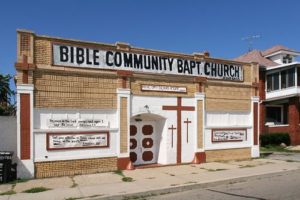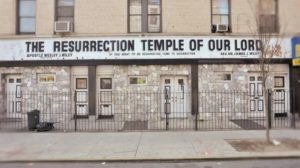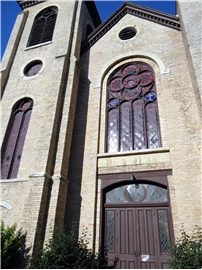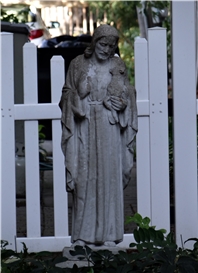Plague Journal, Religare II
 Religion, Part II. I should say more should I not? There’s always evidence around of our sense of a “greater” reality. Walking through a graveyard is the easiest way to get an idea of what is thought, or better, the nature of what some of us believe about the greater or deeper or hidden meaning of this life. Words fail when it comes to this topic. Still one can read the inscriptions on the gravestones.
Religion, Part II. I should say more should I not? There’s always evidence around of our sense of a “greater” reality. Walking through a graveyard is the easiest way to get an idea of what is thought, or better, the nature of what some of us believe about the greater or deeper or hidden meaning of this life. Words fail when it comes to this topic. Still one can read the inscriptions on the gravestones.
Everything natural has an aura of the mystical, of the ineffable dimension  of life does it not? Nature endures, appears to eternally renew itself. For some, myself included that’s enough. But not for everyone. It is fatuous to think that we’d not make an institution, form a church out of our imperfect grasp of the possibility of an over arching meaning to this life. We’d like more clarity, some direction from “the experts” as we’d put it nowadays. In the dim light of prehistory the shaman priest is the one
of life does it not? Nature endures, appears to eternally renew itself. For some, myself included that’s enough. But not for everyone. It is fatuous to think that we’d not make an institution, form a church out of our imperfect grasp of the possibility of an over arching meaning to this life. We’d like more clarity, some direction from “the experts” as we’d put it nowadays. In the dim light of prehistory the shaman priest is the one  you’d consult when you really needed a break, a favorable nod from the tribal deity on the eve of a hunt, or on the inception of warfare against a rival city state, etc. etc. The future has always been and is, uncertain. We need all the help that we can muster particularly when much is at stake.
you’d consult when you really needed a break, a favorable nod from the tribal deity on the eve of a hunt, or on the inception of warfare against a rival city state, etc. etc. The future has always been and is, uncertain. We need all the help that we can muster particularly when much is at stake.
More recently the class which represents the realm of the supernatural are designated by a study of theology, and by familiarity with the sacred rites attendant to marriage, and the rites of mourning, the funeral rite by which we bid farewell to those we have loved the most… Theology: the esoteric and systematic description, stories if you will of the engagement of mortals with the gods and goddesses of our tribe. Ritual: the rites however simple, perhaps no more than reading from a gospel while standing before an open grave under an oak tree — or the complicated recitation of a liturgy at a high mass, surrounded by stained glass in a cathedral with vaulted ceiling. In the latter case, there will be incense. We must not forget the incense.
 Put differently religion is the institutionalization of the awe which we feel, attendant to our vulnerability, to our dependency upon Nature for our well being. To be human is to be vulnerable; homo sapiens is a mammal subject to paradox. We live in wonder. We are caught between a childlike delight in the pleasure of our senses, a moment when time pauses in the taste of red wine, or in the note of a soul mate’s laughter and that awareness of our limited lease on this life. The lease is not indefinitely renewable and we are to lose it all…
Put differently religion is the institutionalization of the awe which we feel, attendant to our vulnerability, to our dependency upon Nature for our well being. To be human is to be vulnerable; homo sapiens is a mammal subject to paradox. We live in wonder. We are caught between a childlike delight in the pleasure of our senses, a moment when time pauses in the taste of red wine, or in the note of a soul mate’s laughter and that awareness of our limited lease on this life. The lease is not indefinitely renewable and we are to lose it all…
As there was a time before my arrival, a time will come when I am no longer here.
“Christ didn’t choose the rich to
preach the doctrine. He chose
twelve poor workers – that is, he
chose the proletariat of the time.”
— Fidel Castro